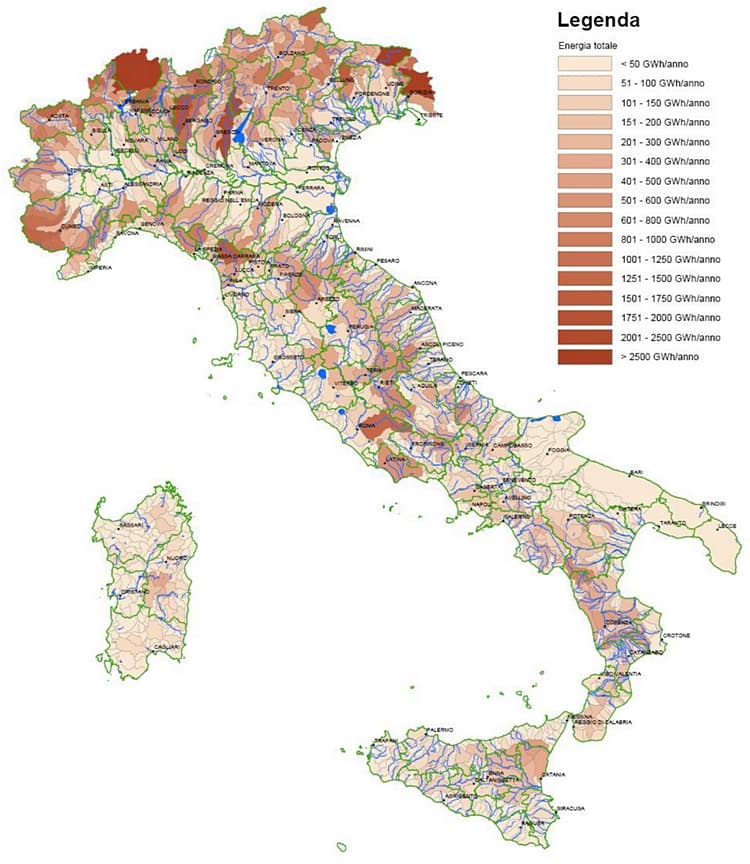
Open Access | Article Published: 23 April 2021
Raimondi, A.; Bettoni, F.; Bianchi, A.; Becciu, G.
Economic Sustainability of Small-Scale Hydroelectric Plants on a National Scale - The Italian Case Study
Water 2021, 13, 1170. Water | Free Full-Text | Economic Sustainability of Small-Scale Hydroelectric Plants on a National Scale—The Italian Case Study
ABSTRACT: The feasibility of hydroelectric plants depends on a variety of factors: water resource regime, geographical, geological and environmental context, available technology, construction cost, and economic value of the energy produced. Choices for the building or renewal of hydroelectric plants should be based on a forecast of the future trend of these factors at least during the projected lifespan of the system. In focusing on the economic value of the energy produced, this paper examines its influence on the feasibility of hydroelectric plants. This analysis, referred to as the Italian case, is based on three different phases: (i) the economic sustainability of small-scale hydroelectric plants under a minimum price guaranteed to the hydroelectric operator; (ii) an estimate of the incentives for reaching the thresholds of “acceptability” and “bankability” of the investment; (iii) an analysis of the results obtained in the previous phases using a model of the evolution of the electricity price over the 2014–2100 period. With reference to the Italian case, the analysis suggests that, to maintain the attractiveness of the sector, it is necessary to safeguard the access to a minimum guaranteed price. With the current tariff plan, complete sustainability is only achieved for plants with p ≤ 100 kW. For the remaining sizes, investments under current conditions would not be profitable. The extension of minimum guaranteed prices could make new medium-large plants (500-1000 kW) more attractive. The current incentive policy is not effective for the development of plants larger than 250 kW, as systems with lower capital expenditures are preferred. Uncertainty about the evolution of the price of energy over time is a concern for the sector; the use of evolutionary models of technical economic analysis tried to reduce these criticalities, and it was shown that they can be transformed into opportunities. It was also found that profitability due to the growing trend expected for the price of energy cannot be highlighted by a traditional analysis.
Copyright: © 2021 by the authors. Licensee MDPI, Basel, Switzerland. This article is an open access article distributed under the terms and conditions of the Creative Commons Attribution (CC BY) license (Creative Commons — Attribution 4.0 International — CC BY 4.0).